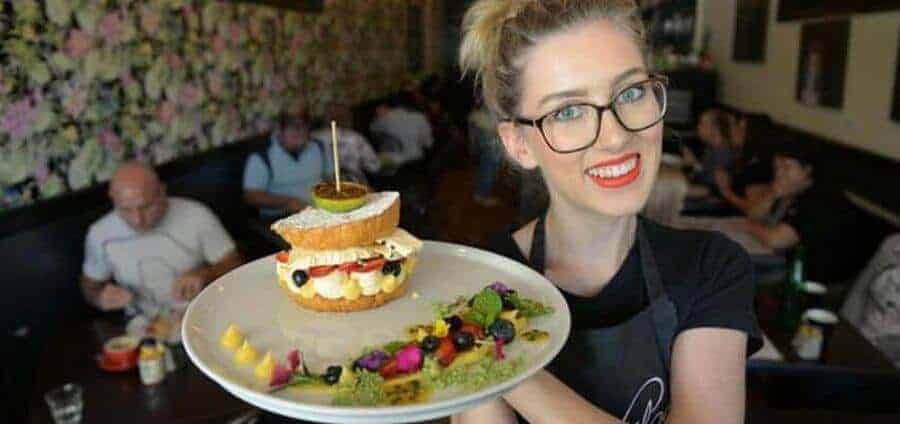Good Food Guide
Hervey Bay is presented with a mass variety of good food places to eat all over the bay. Below are some of the many favourites in and around the bay. When visiting it’s always a good idea to check out areas to eat and to hear what the locals have to say.
We have made it easy for you to decide. Whether it be your craving pizza or good pub classics, such as schnitzel and chips, or the classic Aussie favourite fish and chips. You simply can’t go wrong!
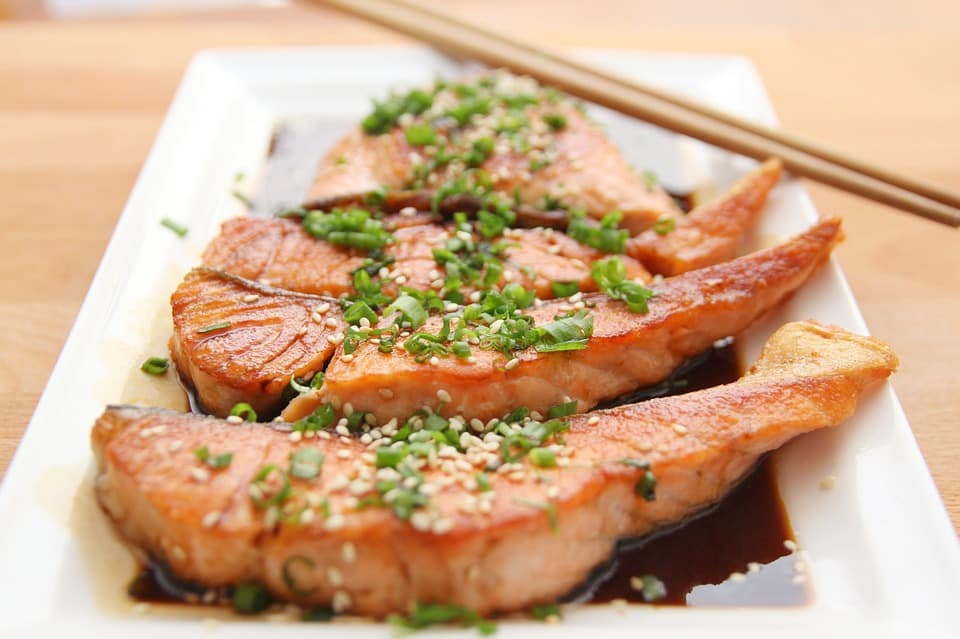
Best Places To Eat In Hervey Bay
When it comes to choosing the best places to eat in Hervey Bay can be difficult, so we’ve set up for you the local’s best places to eat in Hervey Bay.
Let’s face it nobody wants to come to a town for vacation and go out for a nice meal just to order and not be pleased with their meal, that’s why we’ve made it easy for you.
Are you looking for the perfect date location for the perfect night out? Then the best way to start is with a lovely meal, whether you fancy BBQ, Indian, Italian, Pub style food, Mexican, Sushi, Chinese or Thai food the bay has it all.
Looking for the best place to go out for drinks and enjoy the night and beautiful sunsets with the perfect view, then you won’t be disappointed.
Hervey Bay has some of the best restaurants located right on the Esplanade to catch all the wonderful views where you can enjoy a relaxing meal, great drinks, takeaway for picnics in the park, and a lovely stroll to end the evening.
Here is what we believe to be the best restaurants for a great meal in Hervey Bay:
We have made it easy for you to decide. Whether it be your craving pizza or good pub classics, such as schnitzel and chips, or the classic Aussie favourite fish and chips. You simply can’t go wrong!
When it comes to choosing the best places to eat in Hervey Bay can be difficult, so we’ve set up for you the local’s best places to eat in Hervey Bay.
Let’s face it nobody wants to come to a town for vacation and go out for a nice meal just to order and not be pleased with their meal, that’s why we’ve made it easy for you.
Are you looking for the perfect date location for the perfect night out? Then the best way to start is with a lovely meal, whether you fancy BBQ, Indian, Italian, Pub style food, Mexican, Sushi, Chinese or Thai food the bay has it all.
Looking for the best place to go out for drinks and enjoy the night and beautiful sunsets with the perfect view, then you won’t be disappointed.
Here’s Our List Of The Best Places To Eat In Hervey Bay
Hervey Bay has some of the best restaurants located right on the Esplanade to catch all the wonderful views where you can enjoy a relaxing meal, great drinks, takeaway for picnics in the park, and a lovely stroll to end the evening.
We determined our ratings based on 6 Simple Guidelines when choosing the perfect place to eat:
- Atmosphere
- Entertainment
- Quality of Food
- Family Friendly/ Kids Club Option
- Table Bookings and Take Away Options
- Reasonable Pricing
Based on this system we have given a star for each if it’s available at each place.
1. Beach House Hotel Great Pub Food And Water Views
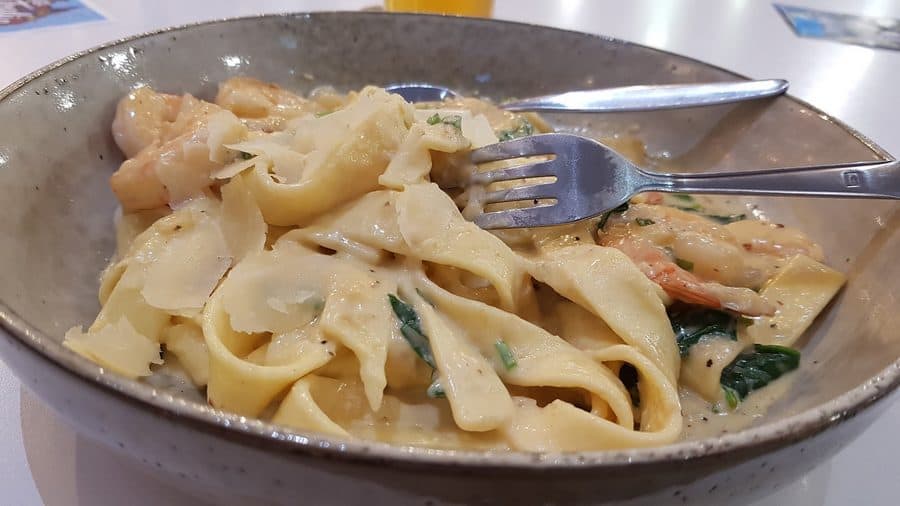
Offering Live bands on the weekends, plenty of seating for large or small groups, great pub-style BBQ food, affordable pricing, share platters, right on the esplanade with beautiful ocean views.
The Restaurant is separated from the pub, with billiards tables and pokies in the back, with a conference room/ private booking room for events on the top level.
We give the Beach House Hotel a 6-Star rating because it offers all of the above in our guidelines, the kids club area is not supervised however but does have all you need to keep the kids entertained while waiting for food.
Address: 344 Esplanade, Scarness QLD 4655, PH 07 4196 9366
2. The Dock Offering Late Night Food And Cocktails

An Urban twist to fine dining and cocktail bar, located in an industrial area. Offering vegan-friendly food and urban style drinks, the perfect place for tapas-style food, with a great beer and wine list. Overlooking the marina makes it a great place for a late-night hang out.
The Dock offers a Tapas only menu, which means you share a bunch of small plates amongst each other and they reward you by the more plates you order the cheaper it becomes. As well as a wide range of cocktails on offer it’s no wonder people choose this as a place to dine.
Based on this we give The Dock a 4-star rating, this is mostly due to it does not have a kids area and is more geared towards couples or mature groups, it is, however, dog friendly in the outdoor eating area and can be rented out for functions.
Address: Mantra Resort, 2 Buccaneer Dr, Urangan QLD 4655, PH 0492 815 742
3. Bayswater Bar And Bistro Located Near The Urangan Pier
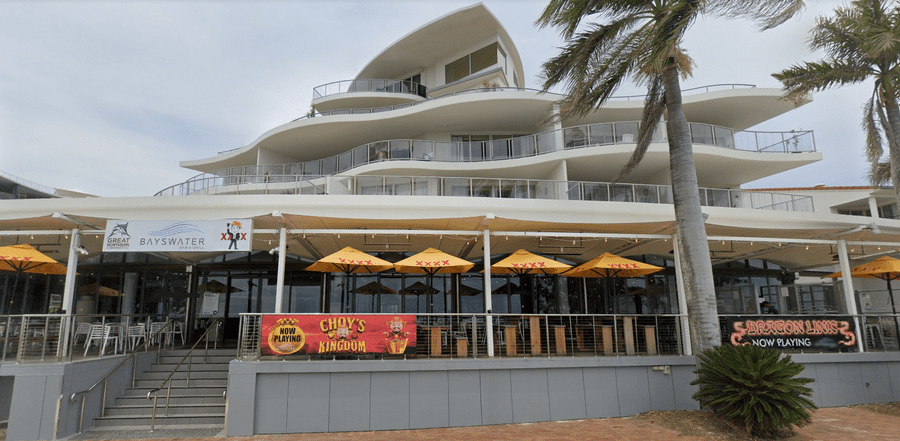
Connected to the Oceans Resort, the Bayswater is a great place to eat any time of day. There are Multiple Bars located within the restaurant and breathtaking views of the famous Urangan Pier this make’s the Bayswater the perfect place to eat. They have a wide variety of food and great lunch Specials.
Located on the esplanade with great views of the ocean and the Urangan pier makes the Bayswater an ideal place for both Lunch and Dinner. Bookings are not necessary which makes it a great option to swing in at any time for a meal.
They do have weekend entertainment as well as a kid arcade area which are on separate sides of each other.
We give the Bayswater a 5-star rating as it meets most needs of diners of all ages. They also are wheelchair accessible making it easy for all types of abilities. There is no monitored kids club at this location and the kids’ facilities are not free as they are paid arcades.
Address: 569 Esplanade, Hervey Bay QLD 4655, PH (07) 4194 6444
4. Hervey Bay RSL Not Just For Veterans
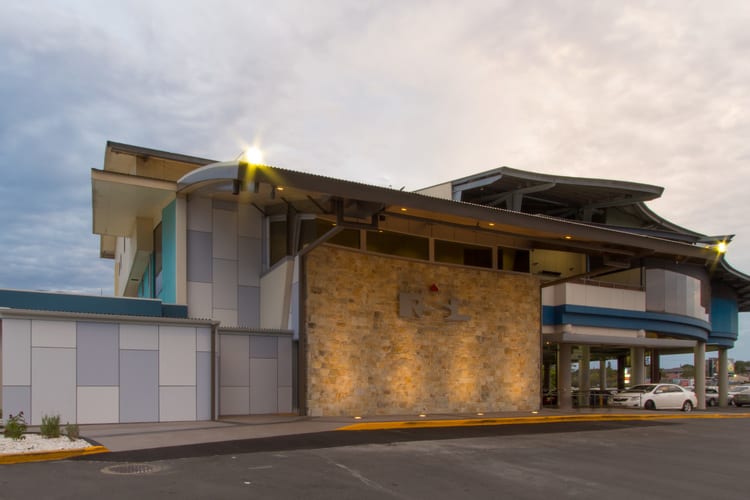
Located next to the Pialba Place Shopping Center the RSL is located up high to still offer views of the Ocean. It has two restaurants located inside, Poppies Cafe and Sandy Bay Restaurant. Poppie’s Offers cafe Style food of Toasted Sandwiches, Cakes, delicious coffee and Tea, and Flatbread Pizzas.
Although it is a members club, visitors are also welcome as well. There is a kids club available from 5-9 pm on weekdays and 5-9:30 pm on the weekends. They have live music available in the evenings, as well as pokie machines and raffles for anyone wishing to try their luck.
Address: 11 Torquay Rd, Hervey Bay QLD 4655, PH (07) 4197 7444
5. Enzo’s on the Beach, Right On The Beach
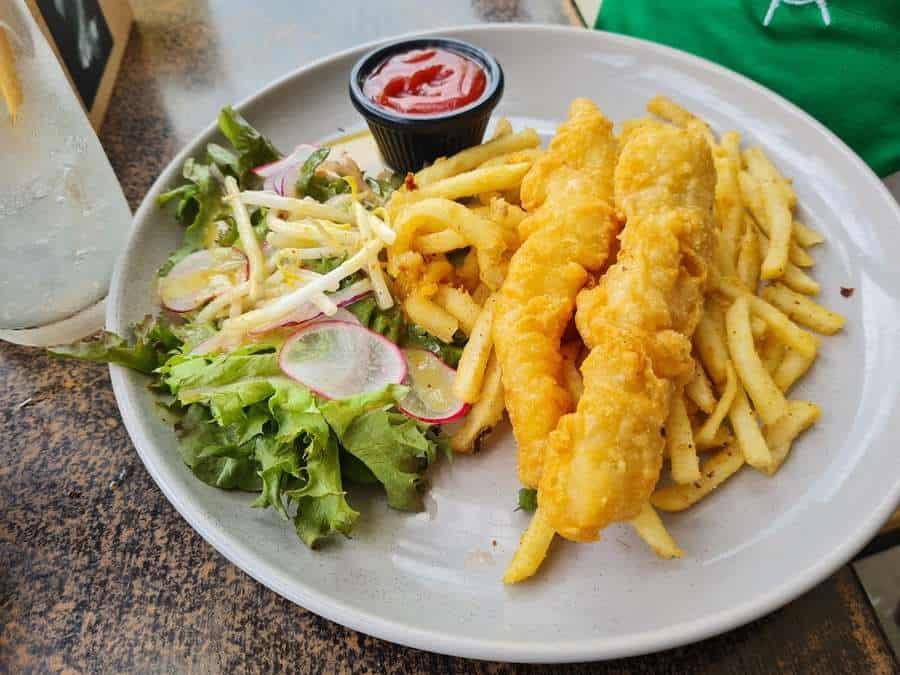
One of only two Restaurants being located as close to the beach as you can get, makes Enzo’s a popular place to catch up for lunch or dinner for many locals. It’s even a hot spot for the ladies to catch up in the mornings for a relaxing cuppa, as there is a park located right next to it, making it great for the kiddies to play in hindsight.
They have gorgeous dishes making you think you’re at a five-star restaurant, yet has a new age feel to the atmosphere. They sell craft beers and cocktails that are to die for, as well as your normal selection of beers.
Address: 351a Esplanade, Scarness QLD 4655, PH (07) 4124 6375
6. Maddigan’s Fish And Chips Shop, Local Seafood
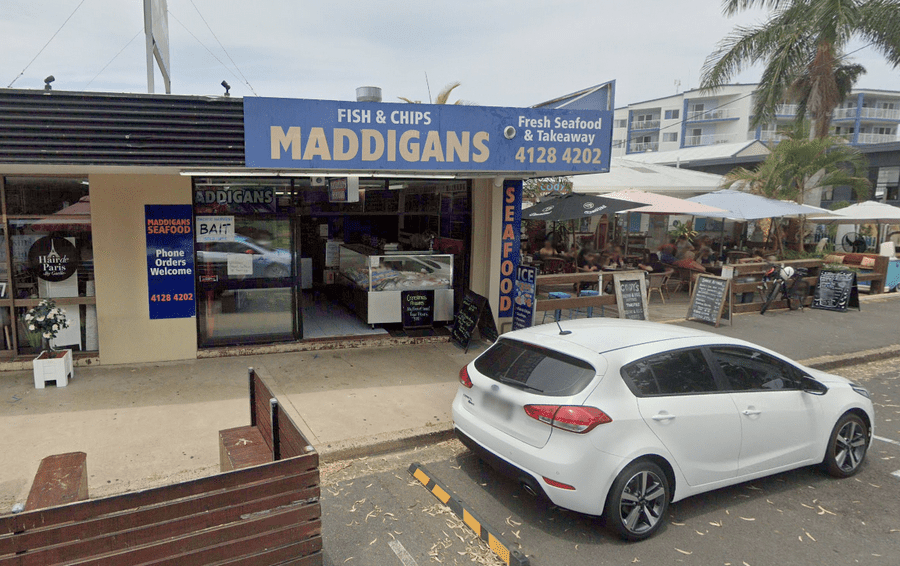
Who doesn’t love classic fish and chips on a hot summer’s day? If you are looking for the best place to go then look no further than Maddigan’s fish and chips shop. Not only do they sell fish and chips but you can find a variety of locally caught and supplied fish delivered every day so you know you’re getting the best quality.
A great Aussie classic for anyone to look for food on the go, although they do have a few tables to sit at outside, there is a lovely park and playground right across the road.
Address: 401 Esplanade, Torquay QLD 4655, PH (07) 4128 4202
7. Eat At Dan & Stephs 2013 My Kitchen Rules Winners
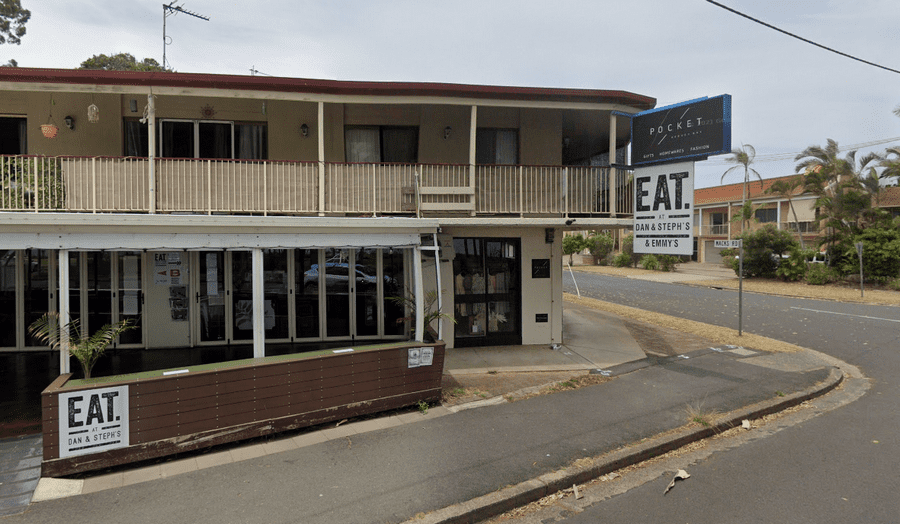
Offering tapas-style food and located across the road from the beach and surf is life-saving. Eat at Dan and Steph’s gives locals and visitors alike to try food that got them the win on my Kitchen Rules back in 2013.
They have also recently won the comeback on My Kitchen Rules and will soon be opening their second restaurant right here in the Bay called The Black Bear.
Address: Shop 1b/449 Esplanade, Hervey Bay QLD 4655, PH 0475 850 173
9. Paolos Pizza Bar Woodfire Pizza At Its Finest
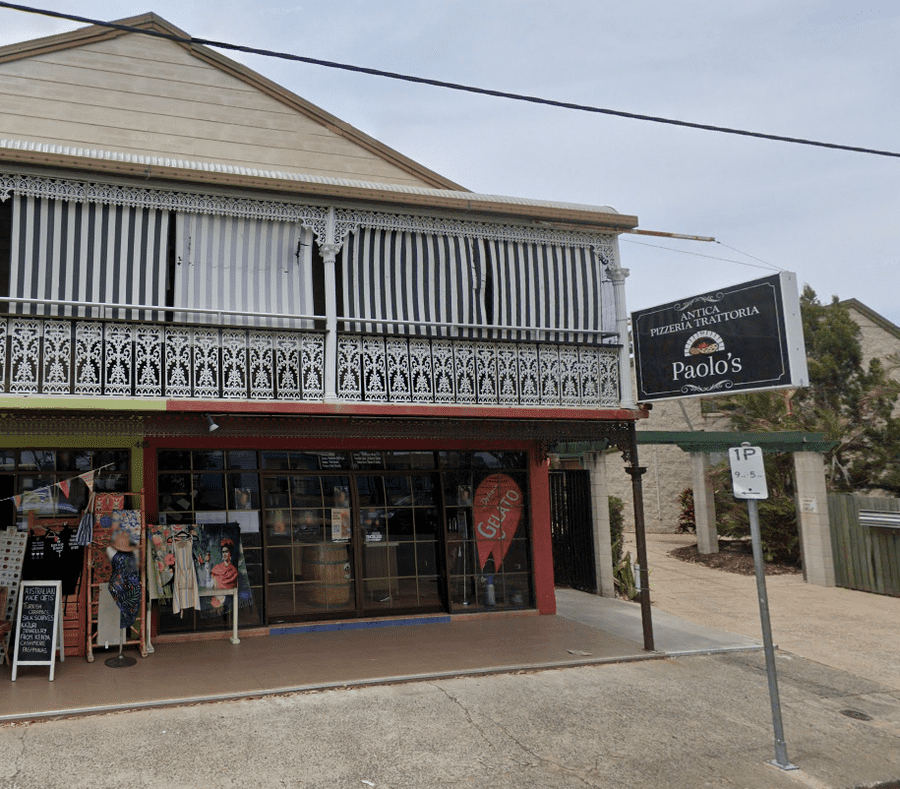
Are you looking for that wood-fire taste in a perfectly made pizza? Then look no farther than Paolos Pizza Bar, offering the finest Hervey Bay has to offer. Many locals flock here for just the right slice and you can’t beat the flavour that comes through each bite.
Call in and order for pick up and enjoy the park across the way overlooking the beach or sit down and enjoy while watching the activity that crowds the esplanade. Affordable pizza made just right!
Address: 446 Esplanade, Torquay QLD 4655, PH (07) 4125 3100
10. Salt Cafe With Breathtaking Views Of Urangan Beach
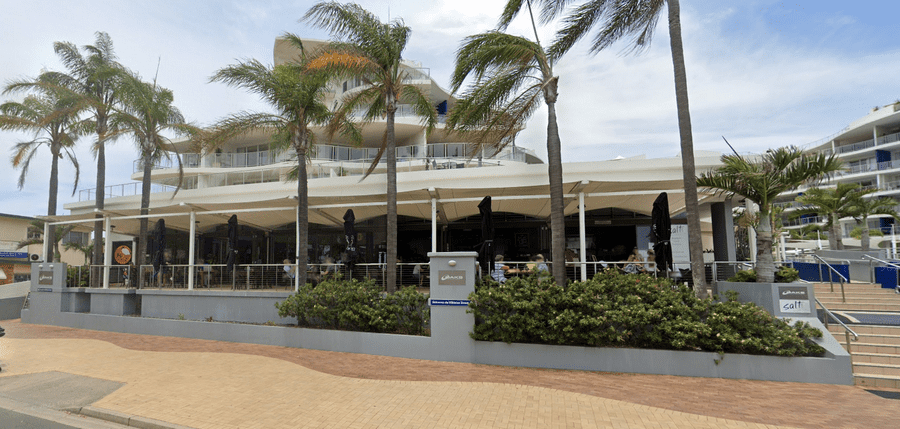
Salt Cafe offers bistro-style food and a lovely variety of coffees and teas, the perfect place for breakfast or lunch. While you are waiting for your food there is a lovely boutique located inside the Cafe for you to browse around for that unique decoration, gift, or clothing.
Salt Cafe is attached to the Ocean Resort and Spa, so why not check them out on your next stay in Hervey Bay, or if you are a local give them a go and taste the flavours they have to offer.
Address: 569 Esplanade, Urangan QLD 4655, PH (07) 4124 9722
11. The Tavern Right In The Heart Of Hervey Bay
The Perfect place for the mid-afternoon beer and bites with the mates after knock off. A popular place for many live events, the tavern is a great place to visit.
Located right off of Boat Harbour Drive in front of the Stocklands shopping centre, makes it is a great place to stop in before heading home. They have pub-style food and cold beer on tap at affordable prices.
Address: 155 Boat Harbour Dr, Pialba QLD 4655, PH (07) 4124 4111
Cafes
| Vinvero’s Café 4/349 Charlton Esplanade Ph: (07) 4124 0888 |
| Salt Café 566 The Esplanade Urangan Ph. (07)4124 9722 |
| Bayaroma Cafe 428 Esplanade Torquay QLD 4655 Ph: (07) 4125 1515 |
| Cafe Balaena Shop 7 Tourist Terminal Buccaneer Ave, Urangan QLD 4655 Ph: (07) 4125 4799 |
| Seaside Cafe Restaurant 475 Charlton Esplanade Ph: (07) 4194 6206 |
| Bean Beat Espresso Bar 2/267A Charlton Esplanade Ph: (07) 4128 4411 |
| Pie & Pastry Paradise Two Locations: 9 Main Street, Pialba QLD 4655 Ph: (07) 4124 1115 2/78 Elizabeth St, Urangan QLD 4655 |
| The Sticky Fig Gallery Café 16/81-91 Boat Harbour Dr Ph: (07) 4191 4443 |
| Zarraffa’s Coffee Hervey Bay Shop 9, 27 Torquay Rd Ph:(07) 4194 2420 |
| Migaloo’s Cafe 1 Pilot St, Urangan QLD Ph: (07) 4128 9479 |
Pubs And Clubs
| The Bayswater Hotel & Restaurant 569- 571 The Esp, Urangan QLD 4655 Ph: (07) 4194 6444 |
| Hervey Bay Boat Club Buccaneer Drive, Urangan QLD 4655 |
| Hervey Bay RSL Club 11 Torquay Road Pialba, Hervey Bay QLD 4655 Ph: (07) 4197 7444 |
| The Beach House 344 Charlton Esplanade, Scarness QLD 4655 Ph: (07) 4128 1233 |
| Bay Central Tavern 155 Boat Harbour Drive, Pialba QLD 4655 Ph: (07) 4124 4111 |
| The Dock Hervey Bay Restaurant Urangan QLD Ph: (07) 4194 6477 |
| Sporties Club 6-10 Pier Street, Urangan QLD 4655 Ph: (07) 4128 9348 |
Asian Foods
| JJN Sushi Chain Shop 069, Stocklands Hervey Bay, 6 Central Ave Ph: (07) 4124 0707 |
| Meemee Sushi & Chicken Shop 6/27 Torquay Road, BAY PLAZA Ph: (07) 4124 7367 |
| Wild Wasabi Sushi 21/2 Ibis Blvd Ph: (07) 4183 1518 |
| Thai Diamond Restaurant 353 The Esplanade, Scarness QLD 4655 Ph: (07) 4124 4855 |
| Fish ‘n’ Grill Polynesian restaurant 4/174 Boat Harbour Dr Ph: (07) 4194 2300 |
| Simply Wok 417 Charlton Esplanade Ph: (07) 4125 2077 |
| Natural Noodle Shop 2/ 174 Boat Harbour Drive, Pialba QLD 4655 Ph: (07) 4128 2362 |
| SOY Asian Cuisine Corner Torquay Rd and, Main St Ph: (07) 4194 2568 |
| Oriental Palace Chinese Restaurant 352 Esplanade, Scarness QLD 4655 Ph: (07) 4128 3496 |
| China World 402 Esplanade Torquay QLD 4655 Ph: (07) 4125 1233 |
| China Pearl Restaurant 38 Torquay Rd, Pialba QLD 4655 Ph: (07) 4124 0828 |
| Yummy Kitchen 349 Charlton Esplanade Ph: (07) 4124 6758 |
| Lemongrass Authentic Thai Cuisine 16 Biddeford St Ph: (07) 4125 4107 |
| Hervey Bay Marina Asian Restaurant Urangan QLD Ph: (07) 4125 5599 |
Take Out And Fast Food
| Zambrero Hervey Bay 73/6 Central Ave Ph: (07) 4124 6785 |
| McDonald’s Boat Harbour Drive Pialba, QLD Ph: (07) 41243555 |
| Meemee Sushi & Chicken Shop 6/27 Torquay Road, BAY PLAZA Ph: (07) 4124 7367 |
| Golden Chicken Elizabeth Street Urangan, Qld Ph: (07) 4125 5456 |
| Subway 163 Boat Harbour Drive (Central Square) Pialba, QLD Ph. (07)4124-7000 |
| Natural Noodle Shop 2/ 174 Boat Harbour Drive, Pialba QLD 4655 Ph: (07) 4128 2362 |
| Domino’s Hervey Bay Two locations: 160 Boat Harbour Drive, Pialba QLD 4655 Ph: (07) 4325 1020 1/486 Charlton Esplanade, Torquay, QLD 4655 Ph: (07) 4197 2720 |
| Mr Seafood Fish & Chips 1/349 Charlton Esplanade Ph: (07) 4194 1300 |
| Madigans Fish & Chip 401 Esplanade Street, Torquay QLD 4655 Ph: (07) 4128 4202 |
| Hungry Jacks Corner Boat Harbour Drive & Main St , Hervey Bay QLD 4655 Ph: (07) 4191 4903 |
| Red Rooster Corner Main St & Boat Harbour Drive, Pialba QLD 4655 Ph: (07) 4124 3322 |
| KFC 1/161 Boat Harbour Drive, Hervey Bay QLD 4655 Ph: (07) 4128 3101 |
| Burger Urge Hervey Bay 74/6 Central Ave Ph: (07) 4325 4816 |
| Pizza Hut Boat Harbour Drv, Hervey Bay QLD 4655 Ph: (07) 1300 749 924 |
| Smithy’s Pizza 2/355 Charlton Esplanade, Scarness QLD 4655 Ph: (07) 4124 8884 |
| Blazes Burgerie 2 Coral St, Urangan QLD Ph: (07) 4125 2020 |
| Mimos Pizza 119 Elizabeth St, Urangan QLD Ph: (07) 4125 2220 |
Indian and Italian Food
| Tandoori Taj 355 Esplanade, Scarness QLD 4655 Ph: (07) 4128 2872 |
| Pop Ferdani’s Italian Eatery Corner of Torquay Rd &, Denmans Camp Rd Ph: 0434 685 958 |
| Namastay India Eli Waters Shopping Center Shop 8B Hervey Bay Ph: (07) 4191 4535 |
| India Gate on the Bay 322 Charlton Esplanade Ph: (07) 4124 2211 |
| Nilima Indian Restaurant 1/383 Charlton Esplanade Ph: (07) 4124 1189 |
| Ricardos Italiano Restaurant 267 Charlton Esplanade Ph: (07) 4124 1666 |
| Santini Pizza E Cucina 470 Esplanade, Torquay QLD 4655 Hervey Bay |
| Paolo’s Pizza 2/446 Charlton Esplanade, Torquay QLD 4655 Ph: (07) 4125 3100 |
| Smithy’s Pizza 2/355 Charlton Esplanade, Scarness QLD 4655 Ph: (07) 4124 8884 |
| Mimos Pizza 119 Elizabeth St, Urangan QLD Ph: (07) 4125 2220 |
Pub Food, Burgers And BBQ
| Hog’s Breath Cafe 163 Boat Harbour Drive, Pialba QLD 4655 Ph: (07) 4194 5566 |
| Waterfront Restaurant Cnr Dayman Park & Pulgul St, Urangan QLD 4655 Ph: (07) 4194 6733 |
| Mum’s Charcoal & Grill Restaurant Pialba Place Shopping Centre, Old Maryborough Rd &, Hunter St |
| Arkarra Tea Garderns 28-32 Panorama drive, Dundowran QLD Ph: (07) 41288069 |
| Eat At Dan & Steph’s 1b/449 Charlton Esplanade Ph: 0475 850 173 |
| Seaside Cafe Restaurant 475 Charlton Esplanade Ph: (07) 4194 6206 |
| The Bayswater Hotel & Restaurant 569- 571 The Esp, Urangan QLD 4655 Ph: (07) 4194 6444 |
| Enzo’s On The Beach 351a Charlton Esp, Scarness QLD 4655 Ph: (07) 4124 6375 |
| Ricardos Italiano Restaurant 267 Charlton Esplanade Ph: (07) 4124 1666 |
| Hervey Bay Boat Club Buccaneer Drive, Urangan QLD 4655 Club Fees or Sign In Visitor Required |
| Hervey Bay RSL Club 11 Torquay Road Pialba, Hervey Bay QLD 4655 Ph: (07) 4197 7444 Club Fees or Sign In Visitor Required |
| Smokey Joe’s Cafe Bar & Grill 627 Charlton Esplanade, Hervey Bay QLD 4655 Ph: (07) 4197 0500 |
| The Beach House 344 Charlton Esplanade, Scarness QLD 4655 Ph: (07) 4128 1233 |
| Bay Central Tavern 155 Boat Harbour Drive, Pialba QLD 4655 Ph: (07) 4124 4111 |
| The Dock Hervey Bay Urangan QLD Ph: (07) 4194 6477 |
| Gringo’s Mexican Cantina Torquay QLD Ph: (07) 4125 1644 |
| Sporties Club 6-10 Pier Street, Urangan QLD 4655 Ph: (07) 4128 9348 |
| The Vineyard Restaurant 552 Charlton Esplanade, Urangan QLD Ph:(07) 4125 6982 |
| Badger & Brown’s Burgerie 449 Charlton Esplanade Ph: (07) 4125 6576 |
| Cafe Tapas Shop 1a/ 417 The Esplanade, Torquay QLD 4655 Ph: (07) 4125 6808 |

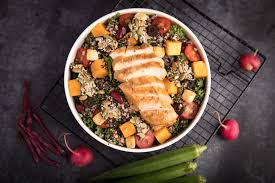

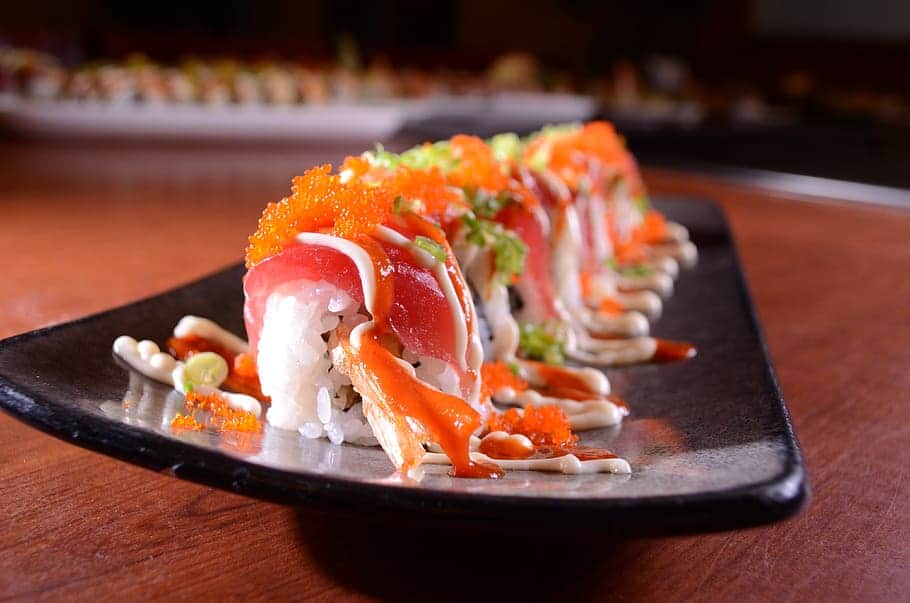
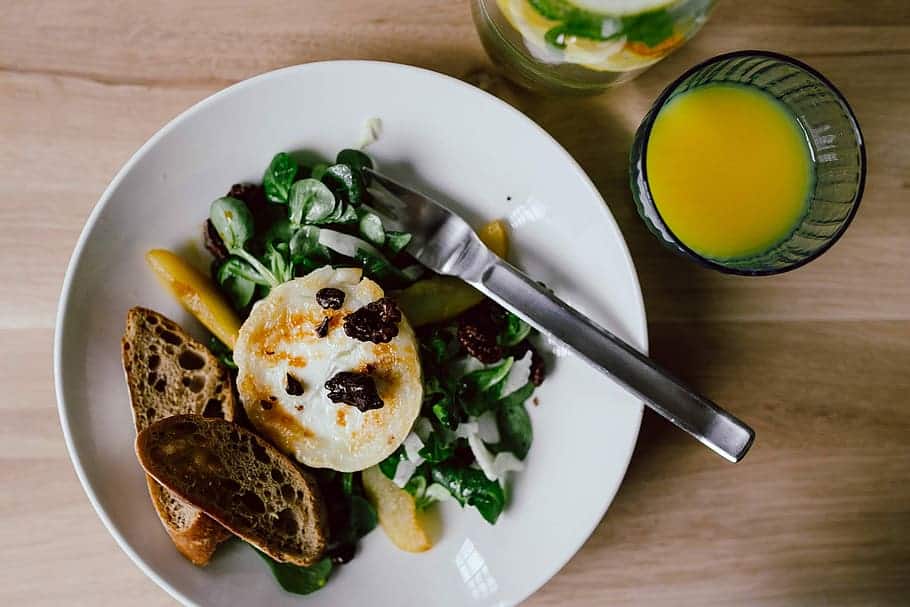
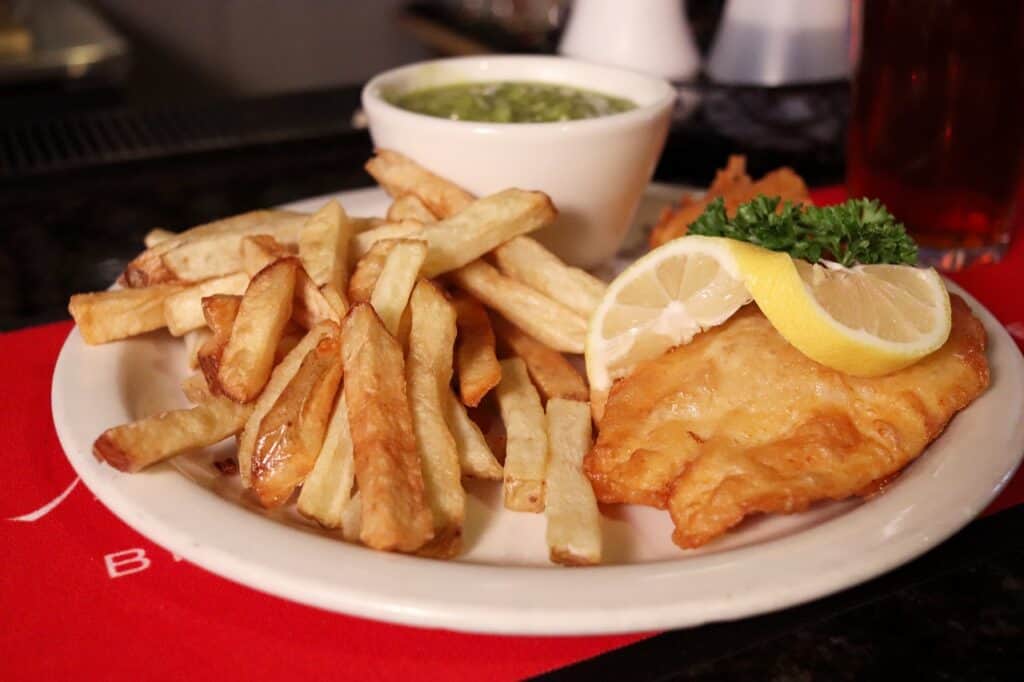
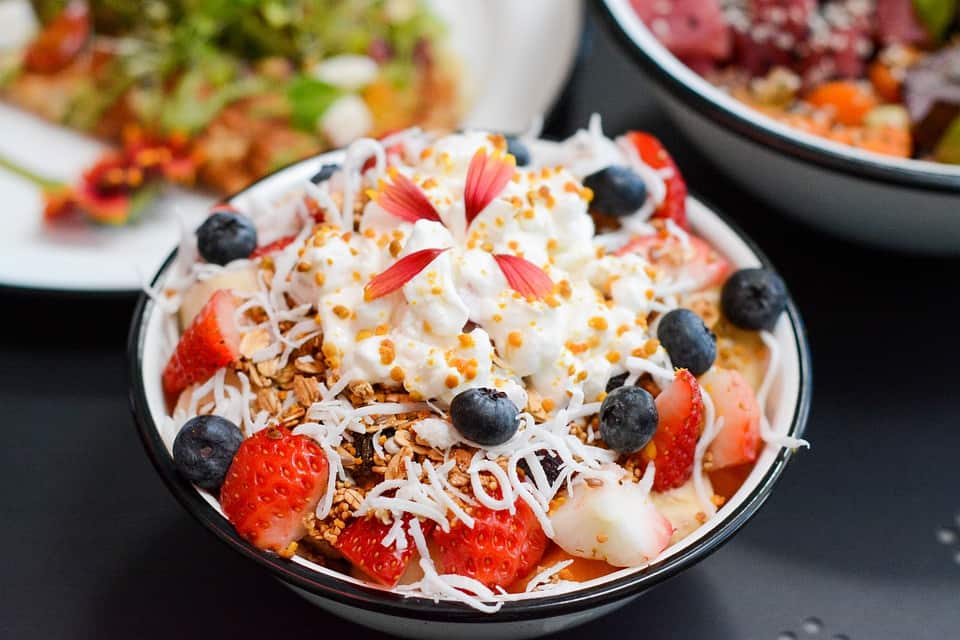
More Pages On Things To Do
These small jetties provide opportunities for various recreational activities, such as fishing, photography, and taking leisurely strolls to enjoy the bay's natural beauty. They are also great places...
Just opened on August the 25th 2023 in Hervey Bay is the new Golfing attraction offering 18 holes of fun for all ages! They offer the locals something new to do in Hervey Bay! Mini Golf Hervey Bay...


